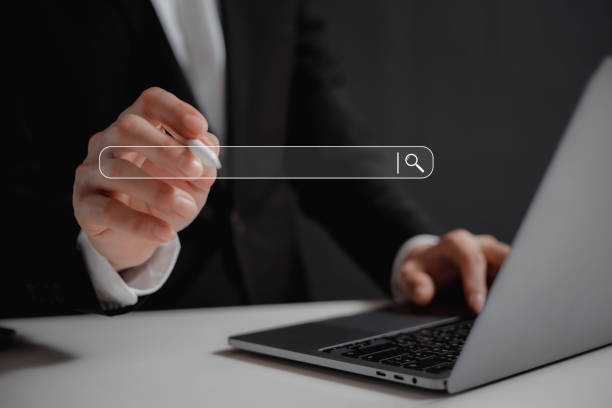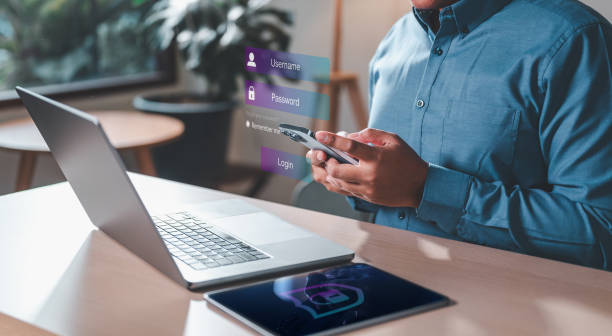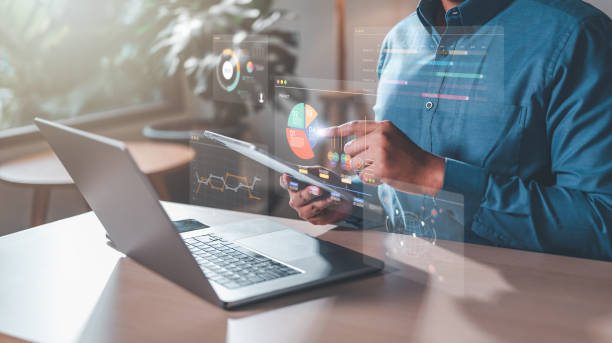An Introduction to Powerful Off-Page SEO and Its Importance

In today’s highly competitive world of Search Engine Optimization, #Off_Page_SEO plays a vital role in determining your site’s ranking.
This part of SEO, unlike on-page SEO which focuses on optimizing elements within your site, deals with all activities performed outside your website to increase its authority and trustworthiness.
The main goal of off-page SEO actions is to send positive signals to Google and other search engines, indicating that your site is a credible and valuable resource in its field of activity.
These signals are primarily generated through inbound links, or backlinks.
The more high-quality links you receive from authoritative sites, the more your domain authority and, consequently, your site’s ranking in search results will improve.
The importance of off-page SEO is so significant that many experts consider it the backbone of any SEO strategy.
Without a strong off-page SEO strategy, even the best on-page optimized content might not be able to reach top rankings.
Off-page SEO activities are not limited to backlinks; they also include social signals, Brand Mentions, and participation in online forums and blogs.
This set of actions, together, helps search engines identify your website as a trustworthy authority.
In this educational and explanatory section, we will help you gain a deeper understanding of the various aspects of off-page SEO and how to implement it effectively to achieve your SEO goals.
It is important to note that building a strong and natural backlink profile is time-consuming and requires consistency and precise planning.
Is your online sales not as you expected? With RasaWeb, solve the problem of low sales and poor user experience forever!
✅ Increase visitor-to-customer conversion rate
✅ Create an enjoyable user experience and increase customer trust
⚡ Act now to get a free consultation!
Key Components of Off-Page SEO and Their Role in Ranking

Off-page SEO includes several key elements, each playing an important role in strengthening your website’s authority and visibility.
The most important and influential component is backlinks.
A backlink is a link given from another website to your site.
These links act as a vote of confidence from other sites.
The more high-quality and relevant links you receive, the more your site’s domain authority increases in the eyes of search engines.
Link quality is more important than quantity; one link from an authoritative and relevant site is worth far more than hundreds of links from low-quality sites.
Building natural and relevant backlinks is the foundation of any successful off-page SEO strategy.
Another important component in off-page SEO is social signals.
Although Google has not explicitly stated that likes, shares, and comments on social networks directly affect ranking, increased activity and content sharing on platforms like Twitter, Facebook, LinkedIn, and Instagram can help increase your content’s visibility, attract more traffic, and ultimately lead to natural backlink creation.
This indirectly impacts off-page SEO.
Brand Mentions without links are also important.
When your brand or website name is mentioned in the content of other sites, forums, or media without providing a link, search engines can consider these as positive signals and contribute to your brand’s authority.
This concept shows that off-page SEO is not limited to links but also pays attention to any mention that adds to your brand’s credibility.
Understanding these components and how they interact is essential for a specialized and precise guidance approach to improving site ranking.
Effective Backlink Building Strategies in Off-Page SEO

Backlink building is the beating heart of off-page SEO, and to succeed in it, one must use smart and ethical strategies.
One of the most effective methods is Guest Blogging.
In this method, you write high-quality and relevant content for other websites and, in return, receive one or more backlinks to your site.
Choosing relevant and high-authority sites for guest blogging is key to the success of this method.
Your content must be valuable, both to be useful for the readers of that site and to make your link appear natural.
Another method is Broken Link Building.
In this strategy, you search for broken links on authoritative sites within your niche.
Then, you contact the site owners and offer to replace the broken link with similar, relevant content from your own site.
This is a win-win method; you get a high-quality backlink, and the site owner fixes a broken link.
This analytical and guidance approach requires some research and follow-up but yields excellent results.
Also, creating Linkable Assets is of high importance.
This content can include infographics, case studies, free tools, in-depth and comprehensive articles, or educational videos that are so valuable that other sites naturally link to them.
Promoting this content through social media and email marketing can help it gain more visibility and provide more link-building opportunities.
These approaches form the core of improving off-page SEO, and each, in turn, helps increase your site’s authority and ranking.
Note that backlink building should be done naturally and gradually to avoid Google penalties.
| Backlink Type | Description | Importance in Off-Page SEO |
|---|---|---|
| Natural Backlink (Nofollow) | Links that users naturally create (e.g., in comments or forums) and have a nofollow tag. | Less direct, but their naturalness is important for Google. |
| DoFollow Backlink | Links that transfer their SEO value to the target site. The main goal in off-page SEO strategy. |
Highest importance; directly impacts domain authority and ranking. |
| Links from Authoritative Sites | Links received from websites with high domain authority (e.g., Wikipedia, Forbes). | Very high importance; gives a strong signal of trust to Google. |
| Links from Relevant Sites | Links coming from websites in a similar or related thematic area to your site. | High importance; indicates thematic relevance and specialized authority. |
The Role of Anchor Text and Link Quality in Off-Page SEO

Anchor Text is a word or phrase that appears as a clickable link within content.
Its role in off-page SEO is extremely vital, as it helps search engines understand the topic of the linked page.
Using diverse and relevant anchor texts not only improves Google’s understanding of your content but also prevents potential penalties from excessive use of a single specific keyword.
For example, if you have multiple links with the anchor text “buy shoes” pointing to a particular page, Google might deem this behavior unnatural.
Diversity in anchor texts is of high importance.
A combination of exact match keywords, partial match keywords, brand names, naked URLs, and even generic phrases like “click here” should be used.
This diversity makes your backlink profile appear more natural and signals to search engines that the links were created organically and not for the purpose of manipulating rankings.
In addition to anchor text, the overall quality of the link you receive also plays a significant role.
Link quality includes several factors: the Domain Authority (DA) and Page Authority (PA) of the source site, the thematic relevance of the source site to your site, and the link’s placement within the content (a link within the main article content is more valuable than one in a sidebar or footer).
Google uses complex algorithms like PageRank to evaluate the credibility of links and ultimately rank pages.
A precise understanding of these concepts is essential for a specialized and effective approach to off-page SEO, helping you optimize your link-building strategies.
Are you losing customers due to your e-commerce site’s outdated appearance or slow speed? RasaWeb’s expert team solves these problems with professional e-commerce website design!
✅ Increase customer trust and your brand’s credibility
✅ Stunning speed and excellent user experience
Get a free consultation with RasaWeb right now ⚡
The Impact of Social Media on Off-Page SEO

It is true that direct links from social networks are usually “nofollow” and do not directly transfer much SEO weight, but the indirect impact of social media on off-page SEO is undeniable.
Strong activity on social networks can help improve your site’s visibility and authority in various ways.
The first and most important impact is the increased visibility of your content.
When your content is shared on platforms like Twitter, Facebook, LinkedIn, and Instagram, more people see it.
This increased visibility can lead to higher direct traffic to your site.
Furthermore, increased content visibility can create natural link-building opportunities.
If your content goes viral or is highly useful and informative, other bloggers, journalists, and website owners might link to it.
These natural, high-quality backlinks are considered one of the most powerful signals for search engines in an off-page SEO strategy.
Also, activity on social networks helps with your brand recognition.
When your brand is more prominent on social networks and has positive interactions with users, search engines consider this a sign of brand authority and popularity.
This Brand Recognition can indirectly influence your ranking, as users are more inclined to search for and click on well-known brands.
Interacting with users, responding to comments and questions, and building an active community around your brand on social networks all contribute to increasing user and search engine trust and authority.
In fact, social media acts as a catalyst for improving off-page SEO, even if their direct impact on ranking is less than that of backlinks.
This educational section shows how these platforms can be best utilized to support your overall SEO strategy.
Local Off-Page SEO Considerations

For local businesses, off-page SEO is slightly different from general off-page SEO, but it still relies on similar principles.
In local SEO, the goal is to appear higher in search results for local users looking for products or services in a specific area.
One of the most important factors in local off-page SEO is the consistent and uniform mention of your business’s Name, Address, and Phone number (NAP) across the web.
This information must be exactly consistent in Google My Business, local directories, social networks, and your own website.
Inconsistencies in this information can send conflicting signals to search engines and harm your ranking.
Local Directories and Citations play a vital role in local off-page SEO.
Listing your business in authoritative local directories like Yelp, Yellow Pages, and industry-specific directories helps Google confirm your business’s credibility and physical presence.
These citations, even if they don’t include links, act as trust signals for search engines.
The greater the number and quality of these citations, the more your local authority will increase.
Online Reviews and Ratings are also very important factors in local off-page SEO.
Positive reviews on Google My Business, Yelp, and other review platforms not only attract potential customers but also show Google that your business is active and popular.
Responding to reviews, whether positive or negative, demonstrates your commitment to customers and can help improve your online reputation.
These elements, all together, help strengthen a local business’s off-page SEO profile and make it more prominent in local search results.
This explanatory approach is essential for any physical business.
Off-Page SEO Analysis Tools and Performance Evaluation

For any successful off-page SEO strategy, using appropriate tools to analyze and evaluate the performance of backlinks and other signals is essential.
These tools allow you to identify your backlink profile, your competitors, and new link-building opportunities.
One of the most popular tools is Ahrefs, which allows you to examine incoming backlinks to any website, view referring domains, anchor texts, and link quality.
This tool is very powerful for competitor analysis and finding link-building opportunities.
SEMrush is also a comprehensive tool that, in addition to backlink analysis, offers extensive capabilities in keyword research, competitor analysis, and rank tracking.
Using SEMrush, you can understand where your competitors are getting backlinks from and how you can acquire links from the same sources.
Another tool worth mentioning is Moz Link Explorer, which provides its own metrics like Domain Authority (DA) and Page Authority (PA) for evaluating the strength and credibility of pages and domains.
These metrics help you gauge the quality of the links you acquire or intend to acquire.
Google Search Console is also a free and vital tool from Google itself that provides information about your site’s backlinks, although it is not as comprehensive as paid tools.
These tools help you gain an in-depth analytical view of your off-page SEO status, identify weaknesses, and improve your strategies for maximum effectiveness.
Continuous monitoring of backlink profiles is also crucial for identifying toxic links and preventing potential Google penalties.
These tools in the guidance section help you follow the optimization path correctly.
| Tool Name | Key Features | Application in Off-Page SEO |
|---|---|---|
| Ahrefs | Vast backlink database, competitor analysis, keyword research. | Finding new link-building opportunities, examining competitor backlinks, monitoring backlinks. |
| SEMrush | Comprehensive SEO analysis, keyword research, competitor analysis, site audit. | Evaluating overall off-page SEO status, identifying link-building gaps, tracking progress. |
| Moz Link Explorer | DA and PA metrics, spam score analysis, backlink analysis. | Evaluating the quality of linking domains, identifying harmful links. |
| Google Search Console | Search performance reports, internal and external links, indexing issues. | Monitoring backlinks identified by Google, reviewing organic traffic. |
Common Mistakes in Off-Page SEO and How to Avoid Them

In the process of off-page SEO optimization, there are some common mistakes that can seriously harm your site’s ranking and even lead to Google penalties.
One of the biggest mistakes is the sole focus on link quantity instead of quality.
In the past, sites tried to acquire as many links as possible, regardless of the source site’s authority or relevance.
However, today, Google has become much smarter and identifies and penalizes low-quality or spam links.
Therefore, always prioritize quality over quantity.
One link from an authoritative, relevant, and high-quality site is far more valuable than hundreds of links from worthless sites.
Another mistake is the excessive and unnatural use of keyword anchor texts.
If most of your incoming links point to a specific keyword, this can be considered by Google as an attempt to manipulate rankings.
Diversity in anchor texts, as mentioned earlier, is vital for maintaining a natural backlink profile.
Also, participating in suspicious link-building schemes such as buying links, mass link exchange, or private blog networks (PBNs) can lead to severe penalties.
Google closely monitors such activities and, if identified, will remove your site from search results.
Ignoring to Disavow toxic links is also a big mistake.
If you discover that spammy or harmful links are pointing to your site, you must disavow them through Google’s Disavow Tool so that search engines disregard these links in their evaluation of your site.
Lack of continuous monitoring of backlink profiles and also forgetting the importance of on-page SEO alongside off-page SEO are other common mistakes.
On-page SEO and off-page SEO complement each other, and without strong on-page SEO, even the best backlinks cannot show their full potential.
This insightful content helps you steer clear of these pitfalls.
Are you losing potential customers due to an unprofessional website? RasaWeb is your answer! With our specialized corporate website design services:
✅ Enhance your business’s credibility and standing
✅ Experience attracting more targeted customers
⚡ Act now to get a free consultation!
Future Trends in Off-Page SEO and Adapting to Them

The world of SEO is constantly changing and evolving, and off-page SEO is no exception.
For long-term success, one must be familiar with future trends and adapt strategies accordingly.
One of the most important upcoming trends is the increasing importance of brand authority and Entity Salience.
More than ever, Google seeks to understand brands as real entities and their connection to specific topics.
This means that mentions of brand names without links, as well as signals related to brand popularity and credibility in the real world, will gain increasing importance.
Another trend is a greater focus on in-depth and specialized content.
Content that is well-researched, comprehensive, and unique naturally has a higher tendency to receive links and be shared.
This means that the content production strategy should align with the off-page SEO strategy, focusing on quality and depth rather than superficial content.
Furthermore, with the advancement of artificial intelligence and language models like BERT and LaMDA, Google is able to understand the meaning and context of content better than before.
This implies that links from thematically relevant sources, even with more natural anchor texts, will gain more value.
The impact of voice and visual search is also increasing.
Although their direct effect on off-page SEO is not yet fully clear, increased user interaction with these formats can help boost content visibility and ultimately provide indirect link-building opportunities.
Finally, the focus on user experience (UX) is also increasingly influencing SEO.
Websites that offer a better user experience engage users more, and the likelihood of their content being shared and linked to is higher.
These informative and engaging trends indicate that future off-page SEO will increasingly focus on natural and value-based approaches.
Measuring Success and Continuous Optimization in Off-Page SEO

After implementing off-page SEO strategies, measuring success and continuous optimization are of high importance.
SEO is not a one-time process but requires continuous monitoring, analysis, and improvement.
To evaluate the effectiveness of your off-page SEO efforts, you should pay attention to several key metrics.
The first and most important metric is your keyword rankings in search results.
Are your target keywords climbing? Have you reached the first pages of Google? Rank tracking tools can assist in this regard.
Another metric is organic traffic.
An increase in inbound traffic from search engines indicates success in your off-page SEO strategies.
Google Analytics can provide you with this information.
Also, an increase in Domain Authority and Page Authority (DA/PA or DR/UR in Ahrefs) signifies an increase in your site’s credibility and trustworthiness in the eyes of search engines.
These metrics although not directly from Google, are good indicators of the health and strength of your backlink profile.
The number and quality of new backlinks you acquire should also be continuously monitored.
Are the links coming from new and authoritative domains? Is the anchor text distribution natural? In addition, you should regularly monitor your competitors’ backlink profiles to stay aware of their strategies and not miss new opportunities.
Continuous optimization involves refining link-building strategies, removing harmful links, and consistently producing linkable content.
Ultimately, off-page SEO is a marathon, not a sprint; patience, persistence, and precise monitoring are the keys to success.
This explanatory and analytical section highlights the importance of monitoring.
Frequently Asked Questions
| Row | Question | Answer |
|---|---|---|
| 1 | What is Off-Page SEO? | Off-page SEO refers to a set of actions performed outside your website to improve its ranking in search engines. These actions include backlink building, social media presence, branding, and so on. |
| 2 | Why is Off-Page SEO of High Importance? | Off-page SEO shows search engines that your website is authoritative, popular, and trustworthy. High-quality backlinks from reputable sites are a strong signal for better ranking and help increase your domain authority. |
| 3 | What are the Most Important Components of Off-Page SEO? | The most important components of off-page SEO include: Link Building, Content Marketing, Social Media Marketing, Influencer Marketing, and Online Reputation Management. |
| 4 | What is a Backlink and Why is it Important for Off-Page SEO? | A backlink is a link that points from another website to your website. These links act as “votes of confidence” in Google’s view and indicate the credibility of your content. The more numerous and higher quality the backlinks, the better your site’s ranking will be. |
| 5 | What are the Types of Backlinks in Terms of SEO Impact? | The two main types of backlinks are DoFollow and NoFollow. DoFollow backlinks pass authority (Link Juice) and directly impact ranking. NoFollows do not pass authority but can still generate traffic and help make the link profile appear natural. (Also UGC and Sponsored) |
| 6 | How Can High-Quality Backlinks be Created for Your Site? | To build high-quality backlinks, methods such as: creating excellent and shareable content, Guest Posting on relevant and authoritative sites, Broken Link Building, Digital PR, and competitor backlink analysis can be used. |
| 7 | What are Toxic Backlinks and How Do They Affect a Site? | Toxic or spam backlinks are links that point to your site from low-quality, spammy, or irrelevant websites. These backlinks can harm your site’s ranking and even lead to penalties by Google’s algorithms. |
| 8 | What is the Role of Social Networks in Off-Page SEO? | Although social signals (likes, shares, etc.) are not direct ranking factors, they help with off-page SEO. They increase content visibility, drive direct traffic to the site, and ultimately enhance the chance of acquiring natural backlinks and improving brand recognition. |
| 9 | What is the Importance of Diversity in a Backlink Profile? | Diversity in a backlink profile means that your links come from various sources (blogs, forums, news sites, directories), with diverse anchor texts, and with a mix of DoFollow and NoFollow links. This diversity indicates to Google that your link-building is natural and organic. |
| 10 | What are the Common Mistakes in Off-Page SEO that Should Be Avoided? | Common mistakes include: buying backlinks in large volumes from low-quality sources, over-optimization with target keywords, neglecting quality in favor of quantity in backlink building, lack of diversity in the link profile, and neglecting toxic backlinks and not disavowing them. |
And other services of RasaWeb Advertising Agency in the field of advertising
Smart Brand Identity: An effective tool for analyzing customer behavior with precise audience targeting.
Smart Digital Branding: A combination of creativity and technology to increase click-through rates by customizing user experience.
Smart UI/UX: A fast and efficient solution for user interaction focusing on attractive user interface design.
Smart Website Development: A professional solution for improving SEO ranking with a focus on custom programming.
Smart Website Development: A professional solution for user interaction with a focus on SEO-driven content strategy.
And over hundreds of other services in the field of internet advertising, advertising consultation, and organizational solutions
Internet Advertising | Advertising Strategy | Advertorial
Resources
Effective Link Building SecretsComprehensive Off-Page SEO GuideBuilding Powerful BacklinksIncreasing Site Authority with Off-Page SEO
? Are you ready to transform your business in the digital world?
RasaWeb Afarin Digital Marketing Agency, with years of experience in providing innovative and creative solutions, helps you establish a powerful and effective online presence and achieve your marketing goals.
We are your strategic partner in secure website design and professional, Search Engine Optimization (SEO), social media management, and executing targeted advertising campaigns, to accelerate your business growth.
For a free consultation and to learn more about our comprehensive services, contact RasaWeb Afarin today and shape a bright future for your brand.
📍 Tehran, Mirdamad Street, next to Bank Markazi, Southern Kazeroon Alley, Ramin Alley, No. 6



